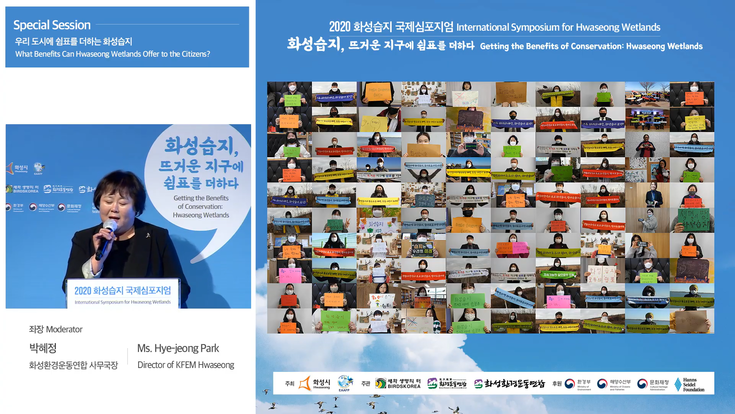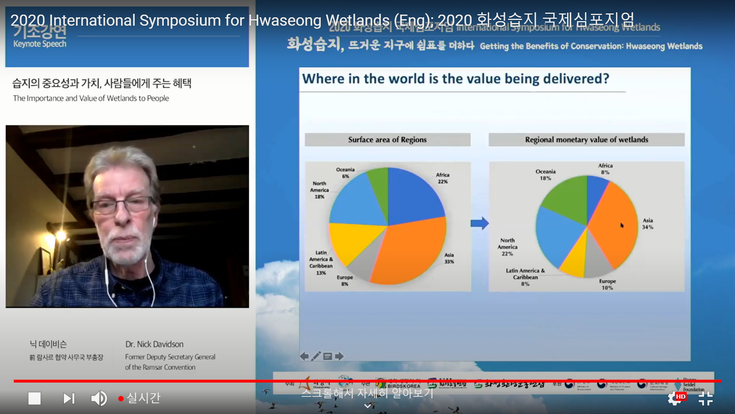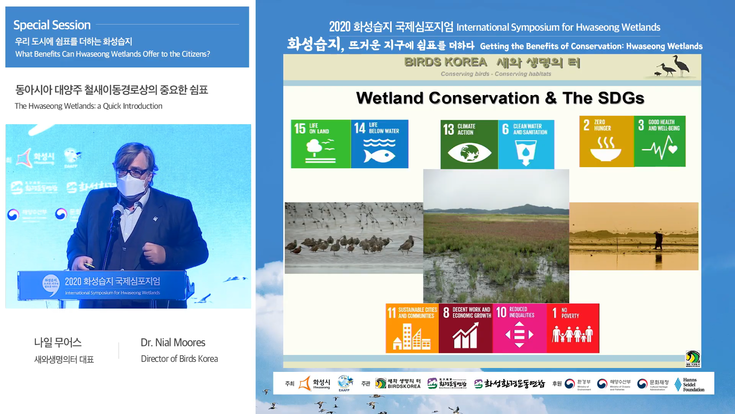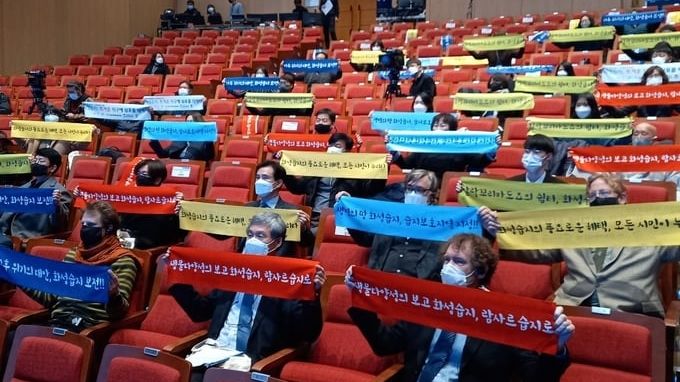Symposium
Preservation of the Hwaseong Wetlands

The importance and benefits of wetlands, particularly the Hwaseong wetlands were outlined by experts as well as concerned local groups. With four main types of wetland, consisting of rice fields, freshwater wetlands, a reclamation lake, and intertidal areas, the Hwaseong wetlands are home to many different species on top of being an important resting place for many waterbird species, among whom many are endangered. This year’s symposium for the Hwaseong wetlands was conducted with precise regard to their importance and mutual benefit for people as well as nature. During the opening ceremony, the necessity of the wetlands’ protection and conservation was particularly stressed by Cheol-Mo Seo, major of Hwaseong as well as Myung-rae Cho, minister of environment. The significance of such was further underlined by members of the parliament: Ok-joo Song, Won-wook Lee and Chil-seung Kwon.

In the following speeches, among others, Nick Davidson from HSF’s partner organisation EAAFP (East Asian-Australasian Flyway Partnership) pointed out the value and benefits of the Hwaseong wetlands more precisely. Davidson, former Deputy Secretary General of the Ramsar convention and now EAAFP’s technical sub-committee chair, held the keynote speech of this symposium. By outlining the monetary value of wetlands, which is twice the value of all tropical forests according to Davidson, he demonstrated that the maintenance of the wetlands can be economically beneficial. In addition to that, his presentation revealed the wetlands severe decline over the years causing wetlands-dependant species to be increasingly threatened with extinction. Thus, he highlighted the need to pursue the goals anchored in the Ramsar Convention of 1971. One key goal is to avoid any harm to the wetlands and to always mitigate. Should that not be possible, compensation and restauration of the wetlands are the next step. Davidson concluded his speech by emphasizing the importance and benefits for both, people and their livelihoods and wildlife. He strongly asserts for a wise use of the wetlands even if “wetlands restauration is not easy but a challenge because of its dynamic nature".

In the following, the director of Birds Korea, Dr. Nial Moores presented concrete ways to improve the maintenance of the wetlands. Dr. Moores underlined the urge to act, since in an observation period of only six months, 23 globally threatened species have been found in the Hwaseong wetlands. His aim is to pursue the 17 goals recorded in the Ramsar convention, the first international agreement on wetlands. He therefore recommends relevant design options such as building fences to enable a peaceful rest for the waterbirds and keep people distant. Dr. Moores further once again stressed that “if the wetlands can be managed wisely and properly, social as well as economic benefits can be derived from it”.
To watch the full video of the symposium, click here.

경기신문
To find out more about the work of HSF concerning wetlands in Korea you can check out the following articles:
1. Mundok Migratory Bird Reserve – Wetland on the West Coast of Korea
2. Biodiversity on Baekryeong Island
3. Bird Surveys in January and February
4. Ecotourism at the Saemangeum Lake in Jeollabuk-do
5. Birds Connect People Over Borders
Two Korean articles on the international symposium have been published, which you can check out here:
화성시, '2020 화성습지 국제심포지엄' 성황리 개최
You can also check out Dr. Bernhard Seliger's research article about the survey in Hwaseong here.
